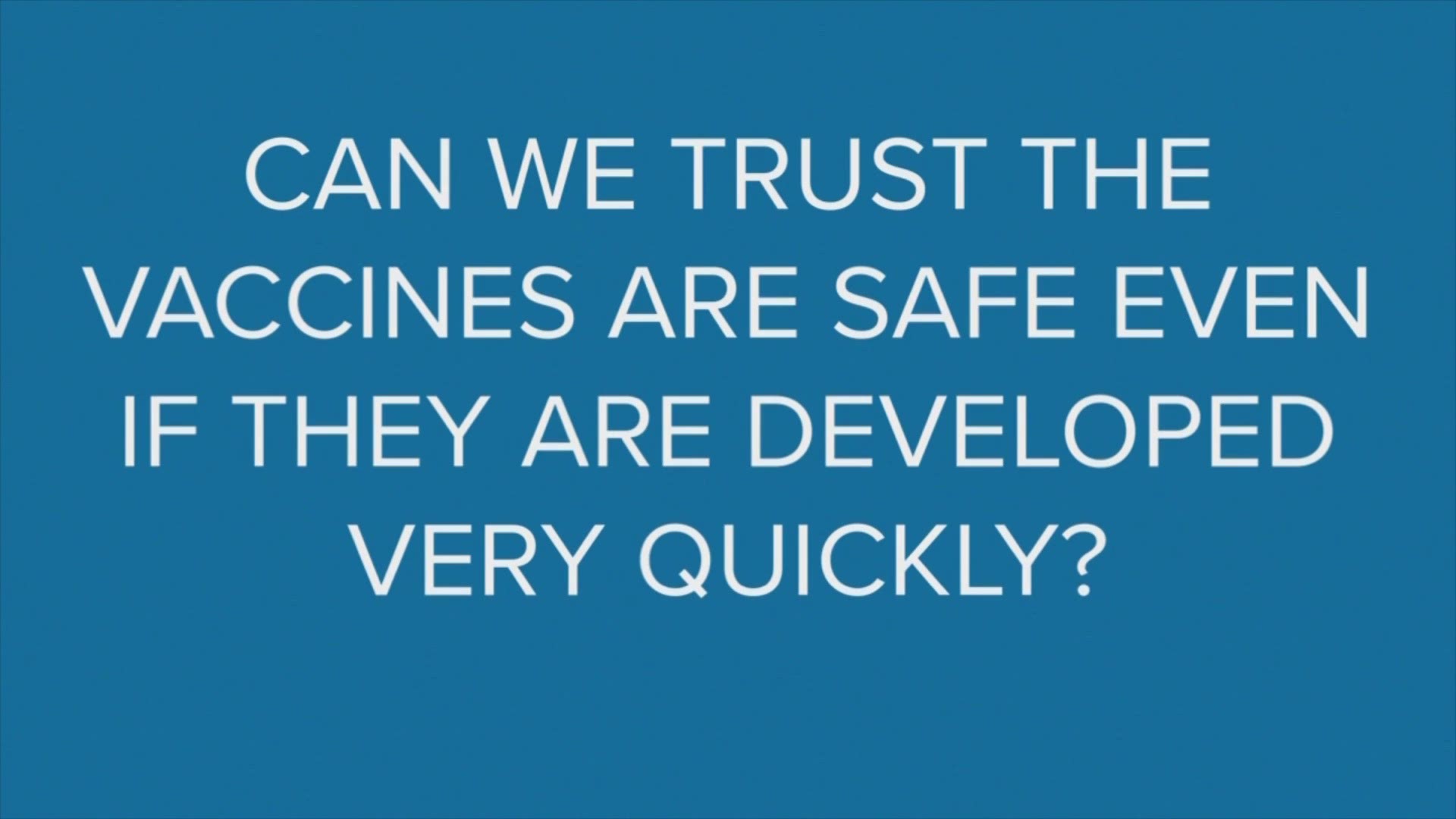AMES, Iowa — Local 5 interviewed David Verhoeven with Iowa State University. He is an expert in veterinary microbiology and preventive medicine, specializing in animal vaccines and making initial vaccines for testing.
Q: Can we trust the vaccines are safe even if they are developed very quickly?
A: One thing you have to rest assured is that the FDA (The U.S. Food and Drug Administration) is always about safety. And although these clinical trials went very fast, a lot of that is from the emergency of this virus. So these biotech companies did not do shortcuts while they did clinical trials, and the FDA would never allow that to occur. Now the advantage of this is that a lot of the red tape has been cut.
Q: Why do you have to get two doses of the vaccine?
A: Because that is what is necessary to what is to evoke a very strong immune response that is going to last you to protect against this virus.
Q: What if you don't get the second dose?
A: If you don't get it within the three weeks and you get it within four or five, you are still likely to get the booster effect. But without getting the booster, your immunity is likely to get even shorter duration.
Q: Can you still spread the virus if you have been vaccinated?
A: We don't fully know that answer. So, it's typical for the flu vaccine to lower the efficacy. So the efficacy for the flu vaccine is about 50%. That you could be protected from the disease but not necessarily from the infection, you could still sort of spread it. With this one, we do know from primates studies, that when they went back in and swabbed the nasal passages of the primates, they don't really see any viral RNA. Which is indicative that it is not replicating there. So if that translates into the human vaccines, then likely you won't be able to shed that virus.
Q: Is there live virus in the Pfizer or Moderna vaccines?
A: There is no live virus in this vaccine. There is one in the Johnson & Johnson one, as well as the AstraZeneca one, but those have not been approved yet.
Q: Why are side effects to the vaccine a good thing?
A: So that implies that your immune system has seen it and has activated an inflammatory response. And we see the same sort of thing with other vaccines, in that a little inflammation is great...but whenever you get soreness, that implies that your immune system has found it, and once your immune system finds it, it will invoke a vigorous response to it.
Q: If you've already tested positive for coronavirus, should you get the vaccine?
A: You should get the vaccine because we know for the data that has been published so far, if you are an asymptomatic individual, your immune protection to this virus can wane within four months. If you were to get this vaccine, you are likely to boost that immunity for at least another year.
Q: How long is your immunity to COVID-19 after you have been vaccinated?
A: So that's unfortunately not quite known yet. If you follow what you see with natural coronavirus infection, you would see protection for at least six months if not a year. Now, Moderna has already put out their three-month timeline, and if you were to follow their dropping trend lines in their timelines, it shows at least antibodies showing up for a year.
Q: Why does the vaccine need to be kept so cold?
A: One of the reasons why this one has to be so cold is because mRNA is so unstable. So, typically, in the lab, we store mRNA at -80 degrees Celsius.
Q: Will the vaccine take into account mutations?
A: What most of these vaccines is that they elicit a type of a neutralizing antibody. and that neutralizing antibody is what blocks the virus from getting in...so your protection is the antibodies from that site. So even with the mutation of this virus, you're still going to see some level of infection.

